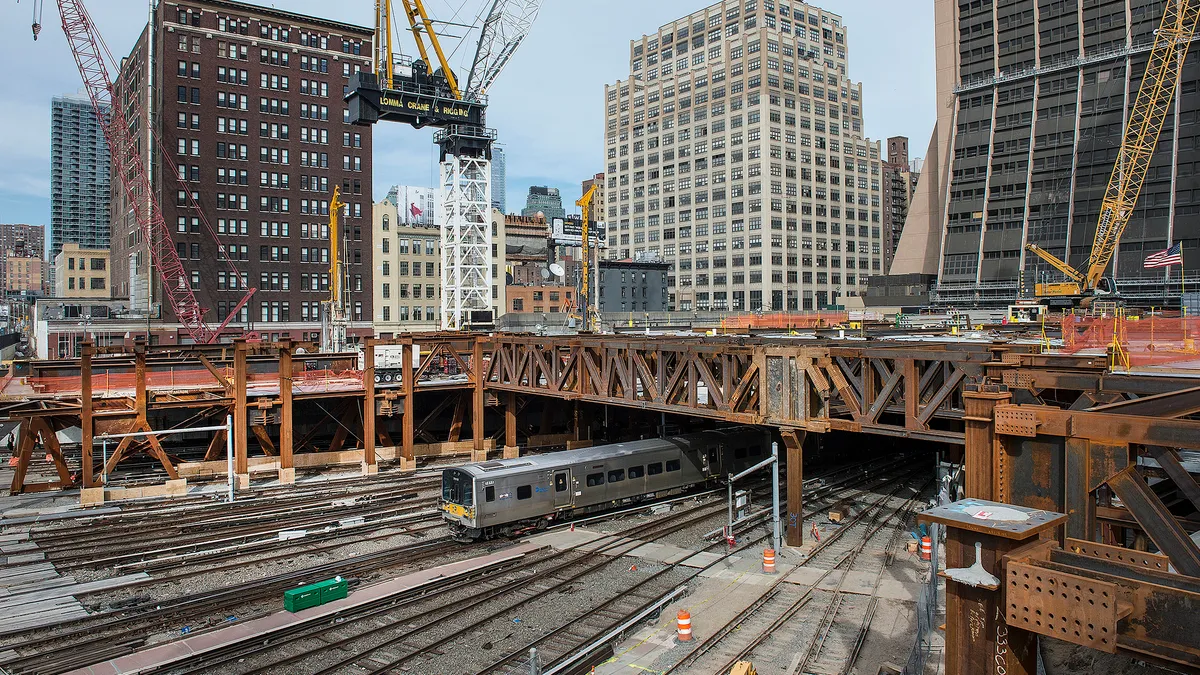Dive Brief:
-
The Real Estate Board of New York and state and union officials have reached an agreement to revive New York City’s 421-a tax break, which requires that developers set aside 20% of a project’s units for low- to moderate-income tenants, according to The New York Times. The deal must be approved by the state legislature.
-
With the revised agreement, developers get a complete tax abatement for 35 years, up from 20 years in the previous version. Additionally, the units set aside as affordable would have to remain so for 40 years.
-
A failed wage agreement led to the tax break’s expiration in January 2016. The new plan aims to address that by setting pay requirements based on a project’s location, with projects in more desirable areas requiring higher wages for workers. Under the agreement, construction workers in Manhattan will be paid $60 per hour, while those in Queens and Brooklyn will be paid $45 per hour.
Dive Insight:
Today, the 421-a program grants more than $1 billion annually in tax abatements, and the new deal would only push that number higher, according to The Times. Critics contend that the longer abatement period, which would lower the city’s tax revenue, makes the plan unviable. But others say that the city needs more rental housing to accommodate residents who can’t keep up with rising costs there.
Cuomo had previously put forth as a possible solution a state-funded wage subsidy that would create wage tiers for projects at either $65 per hour or $50 per hour, depending on their size and location, and subsidize builders for between 25% and 30% of those costs.
Earlier this week, New York Mayor Bill de Blasio introduced a new policy under 421-a requiring developers to make some of a project’s mandatory affordable units available to individuals currently living in homeless shelters, with that change affecting an estimated 750 units so far.
Previous changes to the 421-a tax break have been mirrored by significant changes in New York City real estate activity. When the program expired in January, residential construction permits fell below 2009 levels, though some of those losses were offset by a higher share filed in 2015 over 2014 as developers hurried to beat the credit’s then-potential expiration.
New York isn’t the only city struggling to produce more affordable housing. This election, affordable housing measures were approved in Portland, OR, Los Angeles and the San Francisco Bay Area as West Coast cities in particular struggle with rising rents and for-sale prices.
For more housing news, sign up for our daily residential construction newsletter.













